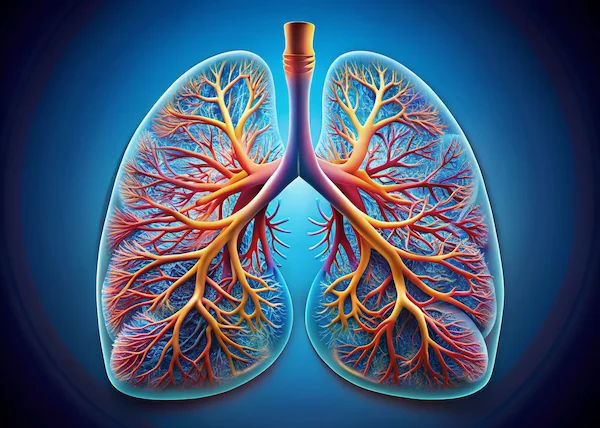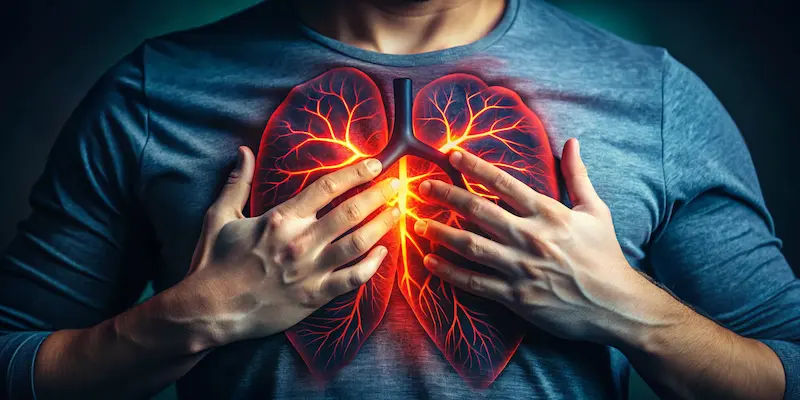Pulmonary Hypertension Overview and Management
Understand pulmonary hypertension, its causes, symptoms, and stages. Learn about available treatment options, lifestyle changes, and management strategies to improve quality of life.


Pulmonary hypertension (PH) is a condition that affects the blood vessels in your lungs, making it harder for your heart to pump blood effectively. While it may sound complicated, understanding PH can help you manage it better and improve your quality of life.
What is Pulmonary Hypertension?
Pulmonary hypertension occurs when the blood pressure in the arteries of your lungs becomes abnormally high. This puts extra strain on your heart, especially the right side, which pumps blood to your lungs. Over time, this can weaken your heart and lead to serious complications if not managed properly.
Common Symptoms of Pulmonary Hypertension
PH symptoms can develop slowly, making them easy to overlook. Some common signs include:
- Shortness of breath (especially during physical activity)
- Fatigue and weakness
- Chest pain or pressure
- Dizziness or fainting spells
- Swelling in the ankles, legs, or abdomen
- Bluish lips or skin (in severe cases)
If you experience these symptoms, especially if they worsen over time, it’s important to consult a doctor.
Consult a Top Pulmonologist
What Causes Pulmonary Hypertension?
PH can develop due to various reasons, including:
1. Heart and Lung Diseases – Conditions like chronic obstructive pulmonary disease (COPD), pulmonary fibrosis, or left-sided heart disease can lead to PH.
2. Blood Clots in the Lungs – A history of pulmonary embolism (blood clots in the lungs) can increase PH risk.
3. Connective Tissue Disorders – Diseases like scleroderma or lupus may contribute to PH.
4. Genetic Factors – In rare cases, PH can run in families.
5. Other Causes – Certain medications, liver disease, or sleep apnea may also play a role.
How Does PH Affect Your Health?
If left untreated, PH can lead to complications such as:
- Right-sided heart failure (the heart struggles to pump blood effectively)
- Irregular heartbeats (arrhythmias)
- Increased risk of blood clots
- Reduced oxygen supply to organs
- Early diagnosis and treatment can help slow disease progression and improve daily life.
Managing Pulmonary Hypertension
While PH is a chronic condition, lifestyle changes and medical treatments can help manage symptoms effectively.
Medical Treatments
Your doctor may prescribe medications such as:
- Vasodilators – Help relax lung blood vessels.
- Blood thinners – Reduce clot risk.
- Diuretics – Help remove excess fluid from the body.
- Oxygen therapy – If oxygen levels are low.
In severe cases, surgery (like a lung transplant) may be considered.
Lifestyle Tips for Better Management
Below are a few lifestyle tips for better management,
1. Stay Active (But Don’t Overexert) – Light exercises like walking or yoga can help, but avoid strenuous activities.
2. Eat a Heart-Healthy Diet – Focus on fruits, vegetables, whole grains, and lean proteins while reducing salt intake.
3. Avoid Smoking and Alcohol – Both can worsen PH symptoms.
4. Monitor Fluid Intake – Too much fluid can increase swelling.
5. Get Vaccinated – Flu and pneumonia vaccines help prevent infections that can strain your lungs.
6. Manage Stress – Relaxation techniques like deep breathing or meditation can help.
When to See a Doctor?
If you experience worsening symptoms like:
- Increased shortness of breath
- Sudden weight gain (due to fluid retention)
- Severe fatigue or fainting
Seek medical help immediately.
Take Control of Your Health
Living with PH can be challenging, but with the right care, you can lead a fulfilling life. If you suspect PH or need expert guidance, consider consulting a specialist.
Need help? You can book a consultation with a pulmonologist or cardiologist through Apollo 24|7 for personalized care and support.
Final Thoughts
Pulmonary hypertension is a serious condition that requires early diagnosis, ongoing medical care, and lifestyle adjustments to manage effectively. With proper treatment and regular monitoring, many individuals can maintain a good quality of life and slow disease progression.
Consult a Top Pulmonologist
Consult a Top Pulmonologist

Dr. Amrutha G
General Physician/ Internal Medicine Specialist
10 Years • MBBS,DNB(family medicine), Diabetologist-CCEBDM,CCGDM
Bengaluru
Apollo Clinic, Sarjapur Road, Bengaluru

Dr Haripriya S G
Family Physician
22 Years • MBBS, PGD (Family Medicine)
Bengaluru
Apollo Clinic, JP nagar, Bengaluru

Dr. Tamal Bhattacharyya
Pulmonology Respiratory Medicine Specialist
8 Years • MBBS, MD (Respiratory Medicine)
Kolkata
MCR SUPER SPECIALITY POLY CLINIC & PATHOLOGY, Kolkata

Dr. Mary Susan K S
General Physician/ Internal Medicine Specialist
13 Years • MBBS, MD INTERNAL MEDICINE
Bengaluru
Apollo Clinic, Sarjapur Road, Bengaluru
(25+ Patients)
Dr. Preeti Kathail
General Physician/ Internal Medicine Specialist
17 Years • MBBS, PGDHHM
Bangalore
Apollo Clinic Bellandur, Bangalore
Consult a Top Pulmonologist

Dr. Amrutha G
General Physician/ Internal Medicine Specialist
10 Years • MBBS,DNB(family medicine), Diabetologist-CCEBDM,CCGDM
Bengaluru
Apollo Clinic, Sarjapur Road, Bengaluru

Dr Haripriya S G
Family Physician
22 Years • MBBS, PGD (Family Medicine)
Bengaluru
Apollo Clinic, JP nagar, Bengaluru

Dr. Tamal Bhattacharyya
Pulmonology Respiratory Medicine Specialist
8 Years • MBBS, MD (Respiratory Medicine)
Kolkata
MCR SUPER SPECIALITY POLY CLINIC & PATHOLOGY, Kolkata

Dr. Mary Susan K S
General Physician/ Internal Medicine Specialist
13 Years • MBBS, MD INTERNAL MEDICINE
Bengaluru
Apollo Clinic, Sarjapur Road, Bengaluru
(25+ Patients)
Dr. Preeti Kathail
General Physician/ Internal Medicine Specialist
17 Years • MBBS, PGDHHM
Bangalore
Apollo Clinic Bellandur, Bangalore

